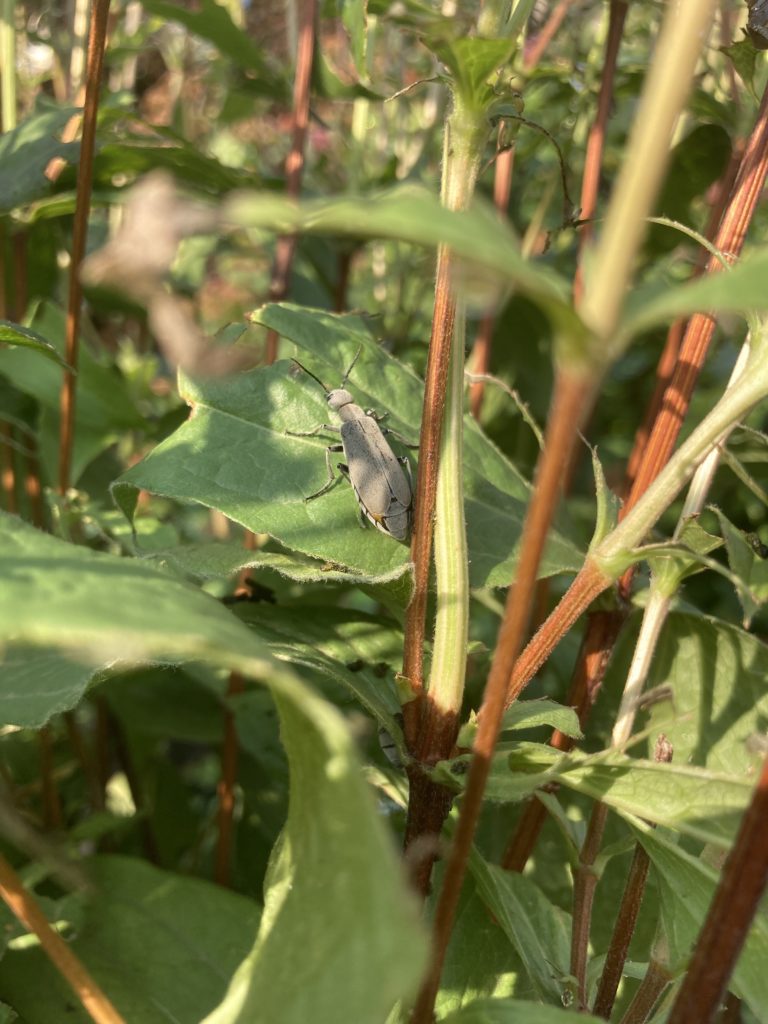Summer Pest Control Gardens & Landscapes - North Forty News

Jesse Eastman
Colorado summers mean hot days, camping trips, and unfortunately, garden invaders. All sorts of pest problems amplify in summer, from insects to fungus to bacterial problems that infest and damage our beloved plants. Fortunately, there is a wide range of options to manage pests and keep our yards and gardens thriving.
At Fort Collins Nursery, we follow a pest management protocol known as IPM (Integrated Pest Management). IPM seeks to solve pest problems while minimizing risks to people and the environment. We choose from a variety of organic and conventional pest controls and consider all aspects of chemical safety. Within the range of both organic and conventional pesticides, some are very toxic, some are not. We keep all options open so we can be as effective AND as safe as possible. We focus on proper watering and fertilizing to keep plants healthy and invite fewer problems in the first place, further reducing the need for any pesticides. IPM principles can also define a safe and effective pest management strategy for the home garden.

Prevention
An ounce of prevention is worth a pound of cure. Plant selection, water, nutrition, and environmental practices are key factors in preventing infestations. Healthy plants are less likely to attract pests, whereas stressed and damaged plants become magnets for insects, fungal issues, and bacterial infections. Regular pruning and fertilizing are key, and overhead irrigation should be avoided when possible.
Identification
Selecting appropriate pest controls requires properly identifying the problem. Look for chewed leaves and stems, discolored and/or distorted foliage, and defoliation. If you don't spot a pest, try coming back at night with a flashlight – some pests are only out after dark. Plant experts can help you identify the problem, but it's hard to do without a sample to look at. High quality photos are good, but plant and pest samples are best. Once the culprit is identified, we can move on to a solution.
Controls
There are three main categories of pest control to consider: physical controls, repellants, and pesticides.
- Physical controls prevent pests from coming into contact with your plants. Bird netting is often used to protect crops from birds, and products made from copper are often used to prevent slugs from crawling up individual plants. Physical controls are generally the safest route, but are more visible than a liquid, granule, or powder which are nearly invisible once applied.
- Repellants work by making plants undesirable to pests. These are primarily scent-based products that repel animals like deer, rabbits, snakes, voles, dogs, and cats. They vary in effectiveness, and what works well for one population of deer or rabbits might not be as effective in a different area. Plus, some have a very strong unpleasant smell, so avoid using them around your patio!
- Pesticides are products that kill pests. To select the appropriate options, consider these factors: First, correctly identify the problem. If you use the wrong product, you won't solve your problem. Second, determine what the safest route will be. The IPM strategy described above is a great guideline to safe and effective pesticide use that will help prevent unintended harm to people, beneficial insects, and the surrounding environment. Always make sure to follow the manufacturer's instructions exactly, as these products are safe only when used correctly and when wearing the appropriate personal protective equipment. Finally, do follow up inspections of your plants. Keep watching for pest problems. Many pesticides, both conventional and organic, require repeat applications to make sure you've completely eliminated the problem. If you allow a pest population to recover after partial treatment, you can create isolated populations of pesticide-resistant insects which are much more difficult to treat.
Did you like what you just read?
Show your support for Local Journalism by helping us do more of it. It's a kind and simple gesture that will help us continue to bring stories like this to you.
Click to Donate

Comments
Post a Comment